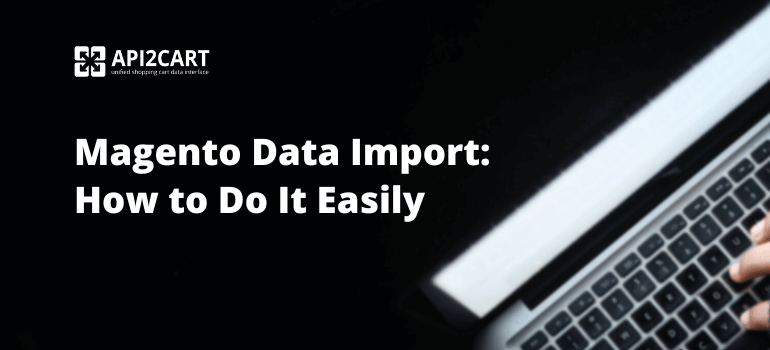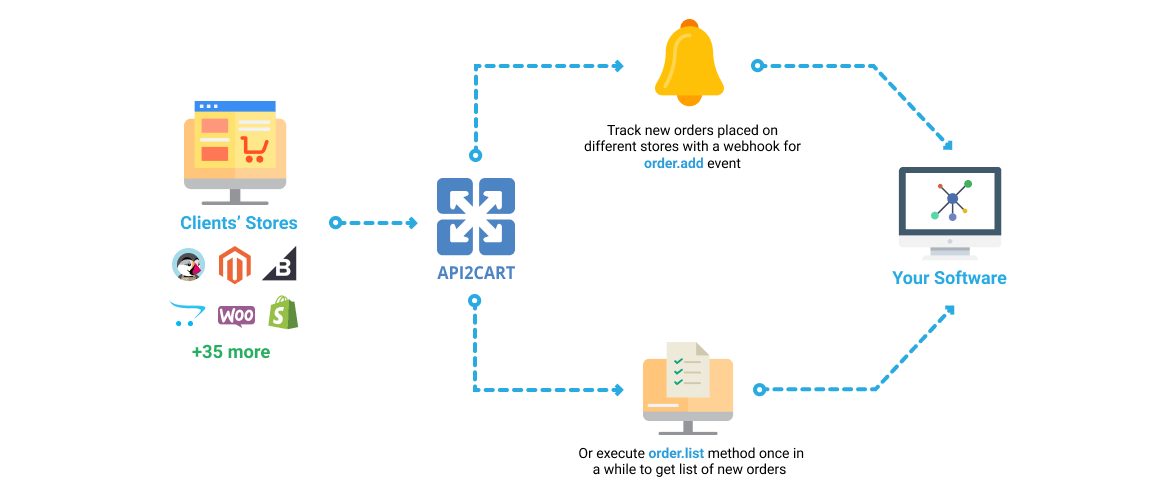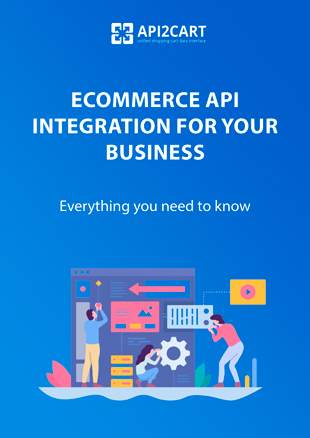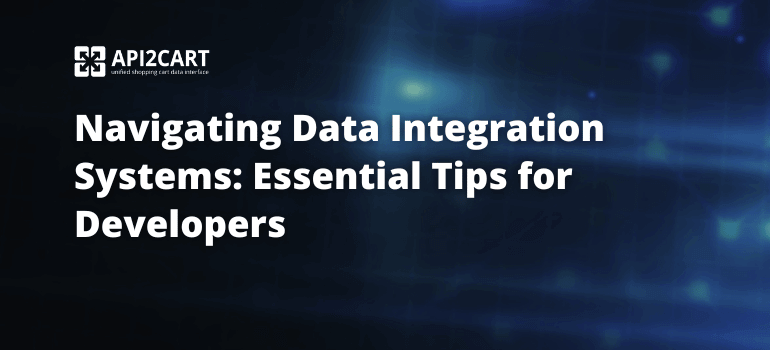
If you want to import data from Magento and manage it, a viable API integration with that platform is mandatory. No matter what type of SaaS business you run, be it pricing, order and inventory management, shipping management software, it will be beneficial for you to work with Magento data and tap into the huge market that this eCommerce platform offers.
In this article, we’ll show you step-by-step how to quickly develop the connection between your eCommerce software and Magento, pull out data from this platform, and use it to provide better services to your target audience.
Why Develop API Integration with Magento?
Magento is a world famous eCommerce platform that is growing day by day. According to the latest statistics, this shopping cart solution has grown exponentially since 2011 and has reached a total of 202k live websites.
Magento is the fourth most popular eCommerce platform in 2023 and the fifth most popular open-source platform in numerous countries such as the UK, Brazil, the Netherlands, and Romania. Magento is now used by some of the most trusted companies, including Gartner, Sigma, Nike, Landrover, Nespresso, Ford, and the famous Liverpool football club.
This platform offers cloud delivery services, business intelligence, order management, omnichannel and B2B services, and implementation strategies for digital transformation.
The main reason why you should develop an API integration with Magento is to access the huge number of customers that use this platform. We are talking about small to medium businesses and large corporations. This would dramatically expand your brand's position in your niche and enable you to outperform your competitors.
Magento API Integration Difficulties
In an ideal world, and integration with Magento would work seamlessly. You would hire a top-tier development team at a great price, they would set up the integration within a few days, and all would work perfectly for years. However, the reality is the exact opposite.
Unfortunately, the Magento integration development process is a highly tedious one and requires a considerable time and money investment.
First of all, due to Magento’s unique API architecture, the developers require specific knowledge to perform this integration successfully. For instance, developers with WooCommerce or Shopify integration experience might not be suited for a Magento connection implementation.
Add to that the fact that Magento comes with an EAV (Entity-Attribute-Value) database model, using 40+ tables with info on products and categories. The SQL query complexity is relatively high, while the import data is a tedious process with specific bugs from Magento itself. You definitely need to hire the right people for a successful Magento API integration.
Second, the API documentation accuracy is quite flimsy. For example, when you create a product using the API, you need to specify the websites to which it should be assigned. The documentation mentions a parameter - website of type ArrayOfString, which should contain this info. But if you send it this way, you won't succeed because the key of the parameter must be website_ids, which must be an ar ray of arrays format that contains the website ID information.
Third, integration requires further maintenance and upgrades as Magento can make changes in its API versions. It also requires hiring professional developers who will be responsible for it.
How to Connect to Magento Easily?
The really bad news about building a connection to Magento is that the API integration difficulties mentioned above are only half of the problems. The other half includes aspects such as high costs, a lengthy integration process, and security issues. Manual integration with Magento should be avoided at all costs.
There is also good news when it comes to Magento integration and importing data from Magento. You can now bypass all these integration difficulties completely by opting for a bespoke, unified shopping platform integration solution. This solution is called API2Cart and it is one of the best tools that eCommerce software providers can use in 2023.
With API2Cart unified API, you can easily connect your solution to the Magento API, as well as to over 40 other shopping platforms and marketplaces. Our service gives you the ability to connect to multiple platforms at once, reducing time and associated costs.
How to Import Data from Magento Using API2Cart?
At API2Cart, we pride ourselves on making it easy for our customers to import data from Magento. We use a proven process that allows you to start importing data and manage it right away. Below we reveal the exact process.
At API2Cart, we provide everything for our customers to import data from Magento online stores. We use a proven process that allows you to start importing data and managing it with your solution. Below, we explore the exact process.
First, you have to register a free account on the API2Cart service with the help of our specialists. The next step is to add a store of one of your customers who is already using the Magento platform. After that, you have to use the API2Cart API methods to start performing the operation of Magento data import.
When importing data from Magento, you can use certain supported API methods. Here are some of them:
- for getting the orders: order.info, order.list
- for getting the products: product.list, product.info
- for getting the customers’ data: customer.list, customer.info
- for getting the categories: category.list, category.info
- for getting the taxes: tax.class.info
- for getting the info on subscribers: subscriber.list
- for getting the attributes: attribute.info, attribute.list

You can import orders, products, customers, categories, taxes, subscribers and attributes using API2Cart. Each particular API method allows you to work with certain types of information, so you can offer a complete array of services to your target audience.
Conclusion
Importing data from Magento and managing it with your software is key to your success. The truly amazing thing is that you don't have to deal with all the hassles of Magento integration, you can integrate your software with over 40 shopping platforms in no time at the best possible price.
Start taking advantage of API2Cart for your business and take your eCommerce software to a whole new level. Contact us to learn more or start your own Magento API integration journey by registering your free account on API2Cart right now.



